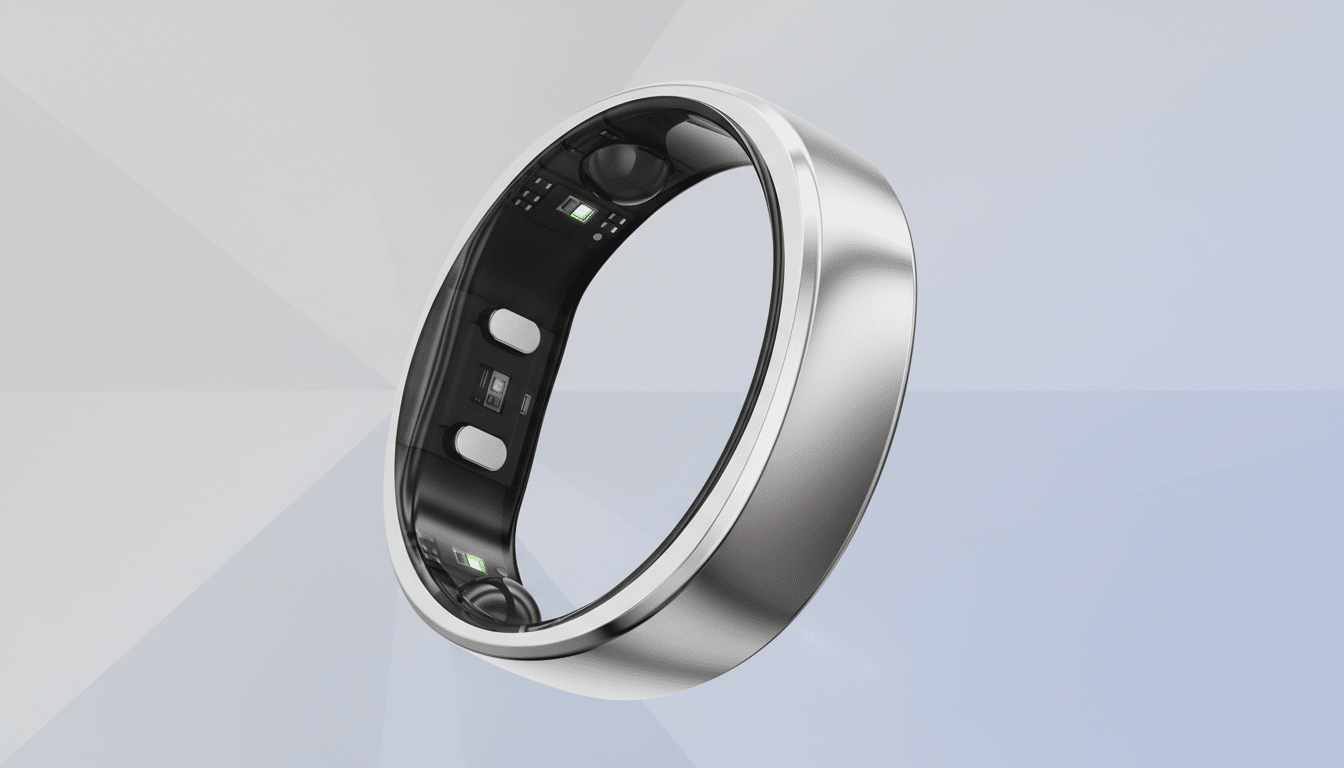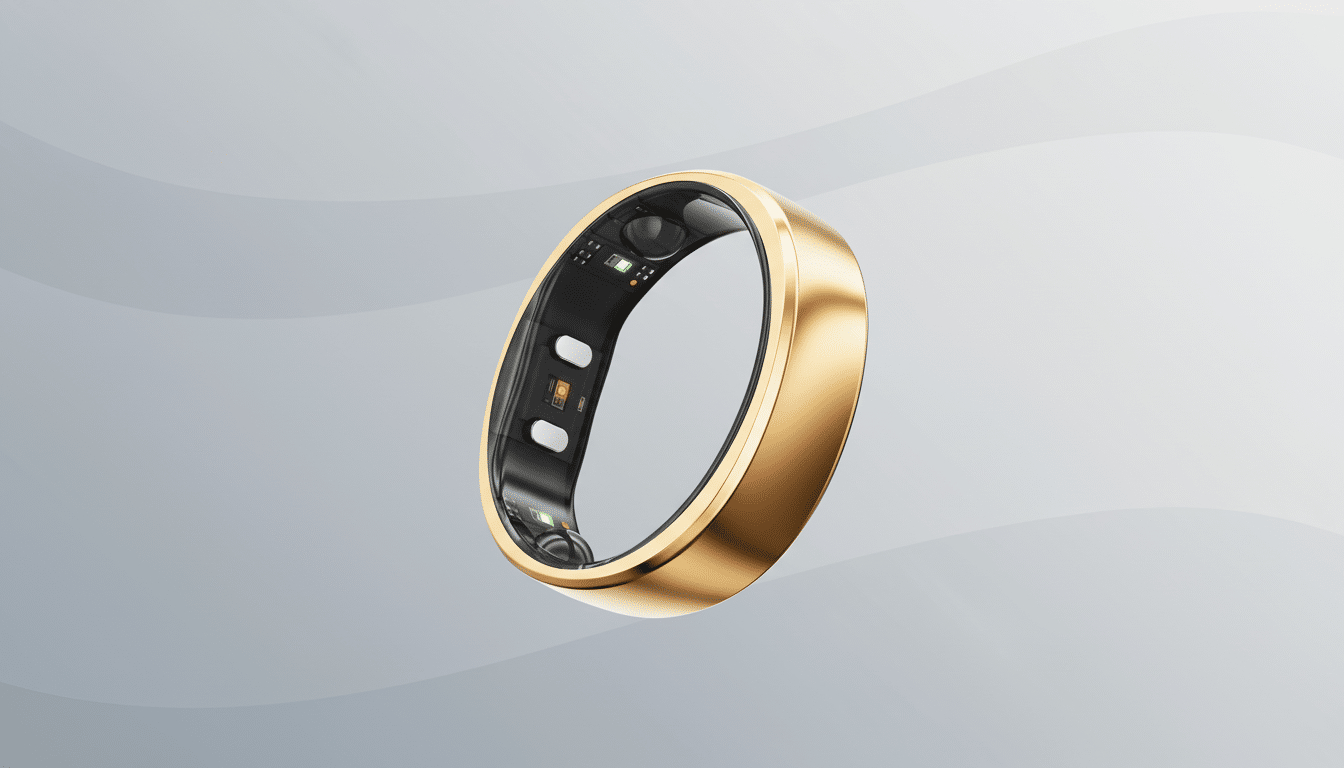The RingConn Gen 2 smart ring just got its first big discount, now $209, down from the usual $299. A 30% discount on an otherwise recent, subscription-free wearable is not common and comes at a time when smart rings are evolving from niche curiosity to mainstream health accessory.
What this 30% RingConn Gen 2 deal includes for buyers
RingConn’s second-generation ring is intended for daily health tracking without monthly fees, which is a differentiator in a market where memberships can proliferate.

The gadget keeps tabs on your average heart rate, blood oxygen (SpO2), HRV, skin temperature trends, activity basics, and sleep stages, turning that into insights on readiness and recovery. In typical use, owners consistently cite more than 10 days of runtime on a charge, aided by a portable charging case that can recharge the ring multiple times when away from home.
The brand also plays up sleep health. As well as sleep stages and efficiency, the ring provides insights on sleep apnea risk, analyzing overnight oxygen saturation patterns and respiratory proxies. The company says it does in-house testing to about 90 percent detection accuracy, but actual results can vary based on user and environment. It is not a medical device, and organizations like the American Academy of Sleep Medicine endorse clinical testing for diagnosis, but a nightly screening alarm could lead to earlier conversations with your doctor.
Build quality is another plus. The Gen 2 implementation leverages multiple PPG sensors and motion tracking to minimize optical noise induced by finger movements, and it is also water-resistant enough for handwashing and showering. It works with both Android and iOS, there’s a companion app, and RingConn sends buyers a sizing kit to help find the right circumference—which is important for accuracy and comfort when it comes to an optical-reading device.
How this RingConn Gen 2 offer compares to rival rings
Saving money is obviously the headline benefit here. Competing rings tend to package more advanced features behind memberships—Oura’s widely used ring, for instance, costs around $6 a month for full insights. Over a year, that can cancel out the savings you’d get from a one-time discount on hardware. RingConn still offers analytics without a subscription, and that’s really tempting long-term value.
There is reasonable battery life, too. Most rings have an approximate four- to seven-day lifespan; RingConn’s real-world double-digit battery life eliminates charging friction—a critical reason wearables become dust collectors. Accuracy differences are more nuanced. In separate lab research—independent work cited by academic groups like Stanford’s Wearables Project—optical sensors are typically accurate in predicting resting heart rate but have more variability during vigorous movement. The pattern is consistent across the category: rings still shine on passive health stats and sleep, while watches are now out in front for high-intensity workout statistics and GPS training.

Compared with newer entrants, RingConn’s no-fee structure and robust battery make for the easiest transition out there. Some brands focus on coaching layers or smart home integrations; others seek a medical-grade certification. For the majority of folks in search of crisp trendlines on recovery, sleep, and daily strain without any kind of subscription service, RingConn is one of the simplest cases available today.
Who should jump on this limited RingConn Gen 2 discount
If you’re in the market for a low-profile fitness tracker with an emphasis on sleep quality, all-day vitals, and long battery life, the time is now.
It’s particularly appealing to buyers who are averse to subscriptions, or to those replacing a smartwatch with something lighter and more comfortable at night. If you travel a lot, you might like the charging case and multi-day battery life; if you just want to see whether your wife isn’t wrong when she tells you that morning grogginess could be sleep apnea, you might appreciate nightly screening prompts (in addition to more traditional overall sleep scores).
That said, athletes who live and die by training load, sophisticated performance metrics, and on-wrist navigation will still be better served with a high-end multisport watch. Rings are a complement to fitness tracking; they do not replace dedicated sensors for intervals, power, or precision GPS.
Key details and buyer notes for this 30% RingConn sale
- Price during this sale: $209 (reduced from $299), the first meaningful price cut on the Gen 2 model.
- No full insights subscription required; cost-effective in the long run.
- Typical battery life lasts over 10 days on a single charge, with the help of a portable charging case.
- Monitors heart rate, SpO2, HRV, and temperature trends, as well as activity basics and sleep metrics; offers monitoring of sleep apnea risk, but it is not a diagnostic device.
- Proper sizing matters; use the included fitting kit for optimal sensor performance, fit, and comfort.
As the market for smart rings warms up and name brands compete for command of your finger, a first-time 30% discount on this well-regarded, fee-free platform is worth noting. If you’ve wanted to jump into ring-based health tracking, chances are this is one of the most buyer-friendly times so far.

